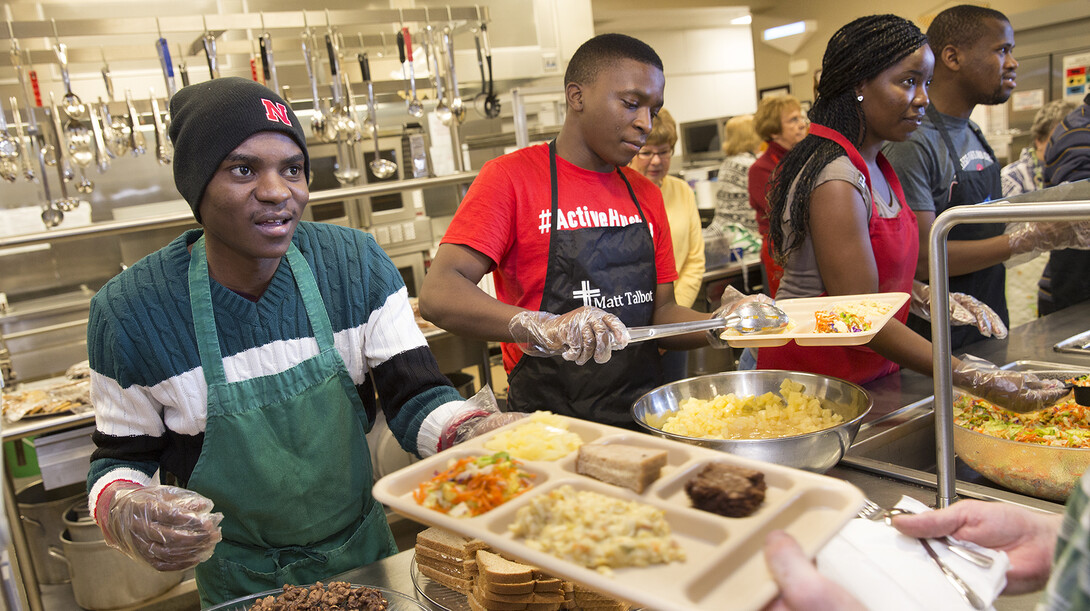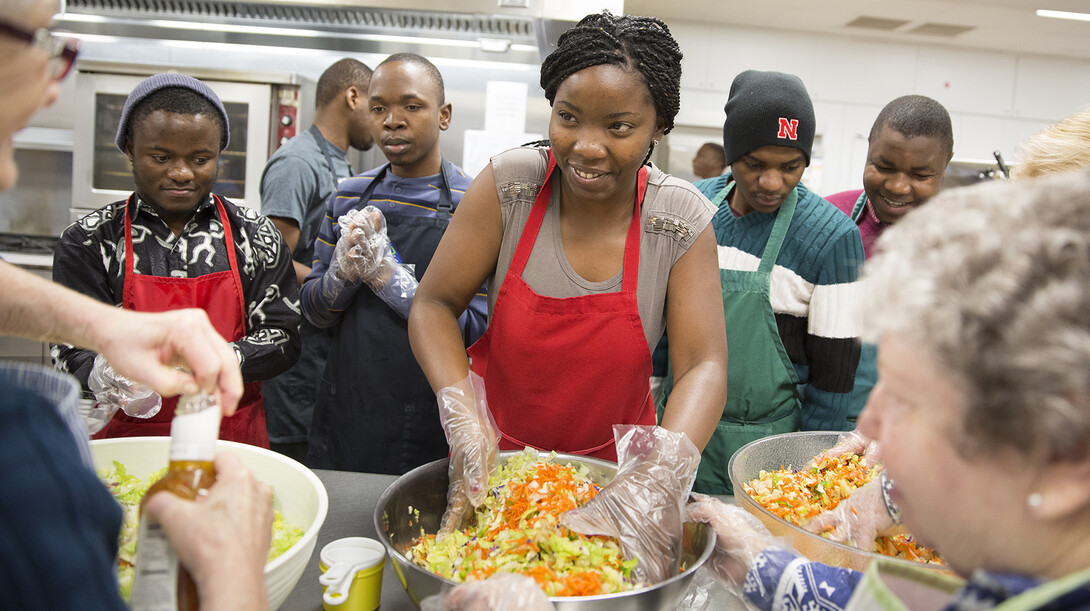
There are 20 new faces lending a hand at various non-profit organizations in Lincoln this month and they’ve also been making themselves at home in the univeristy’s classrooms.
The students, members of the 2015 Study of the United States Institute on Civic Engagement, represent the African countries of Botswana, Zimbabwe, Mozambique, Angola and South Africa. The departments of political science, communication studies and the Center for Civic Engagement are hosting the Institute for its second year thanks to a grant from the U.S. State Department.
As scholars chosen by their respective embassies, the students are spending four weeks in Lincoln before traveling to Birmingham, Ala., and Washington, D.C. While in Lincoln, they are taking Nebraska classes on U.S. history, government, human rights, democracy and civic engagement.
Then they’re putting everything they’re learning to practice by meeting with local and state lawmakers and doing service-learning projects.
On Jan. 27, eight scholars were working alongside a retired teachers’ organization to serve nearly 200 meals at Matt Talbot Kitchen and Outreach Center. For most, the program’s community service aspect was a new experience, but was also the most rewarding.
“Being at the service sites has been my favorite part of the trip,” Chiedza M. of Zimbabwe said. “I was surprised to see that people are so involved and help each other.”
The last names of the participants are not fully disclosed per State Department policy.
The scholars arrived at Nebraska on Jan. 9 and 10 and have spent the month acclimating to the Nebraska’s weather and its people. The program is directed by Patrice McMahon, associate professor of political science; Linda Major, assistant to the vice chancellor for student affairs; and Damien Pfister, assistant professor of communication studies. Many Husker faculty are also helping with the program by giving lectures, providing mentoring and assisting with events. Twenty students will again be peer mentors for the program.
“(Nebraskans) are good people, very welcoming,”Anibal P. of Angola said. “They want to help and they say thank you and that’s amazing.
“It’s been great to meet students from many different countries and to learn about their cultures.”
Each week of instruction has been focused on a different theme; the goal of the program is to teach the participants about democracy, rights in the United States and the world, hone leadership skills and help them develop service projects they can organize in their home countries.
“It has been eye-opening to look behind the story of America and how it became the powerhouse it is,” Chiedza M. said. “I like how people are coming together to help each other. I want to try to bring that back to my country.
“People are very good at coming together in a disaster, but then disperse. I’d like to develop something constant, like a food bank.”
The scholars will present their ideas for civic action in their final week on campus. Then, their final week in the United States will be spent touring some of the most historic sites in the Civil Rights movement in Alabama.
The Institute will end with meetings with Nebraska’s representatives in the U.S. House of Representatives and the U.S. Senate.
The Study of the U.S. Institutes are designed and funded by the U.S. Department of State’s Bureau of Educational and Cultural Affairs. Participants are among more than 50,000 people participating in U.S. Department of State exchange programs each year.
For more than 60 years, the bureau has funded and supported programs that seek to promote mutual understanding between the people of the United States and the people of other countries.








